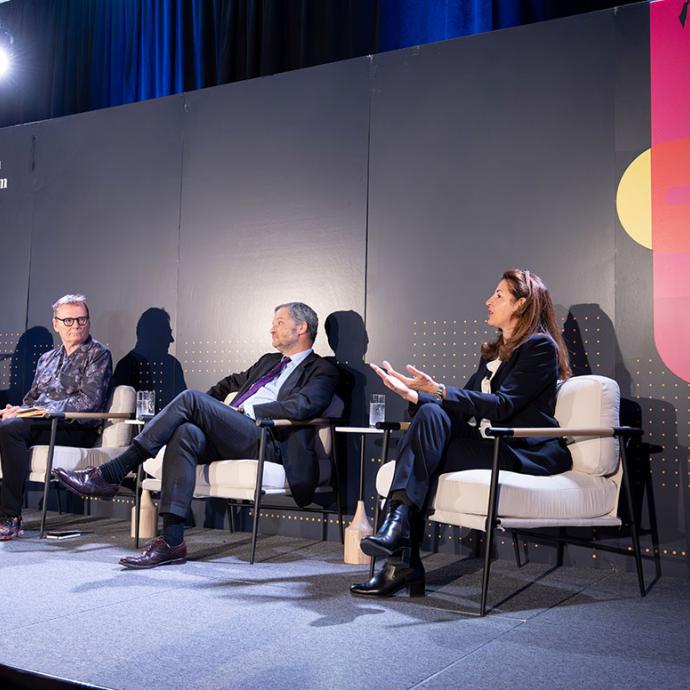More than a third of marriages between 2005 and 2012 began online, according to new research at the University of Chicago, which also found that online couples have happier, longer marriages.
Although the study did not determine why relationships that started online were more successful, the reasons may include the strong motivations of online daters, the availability of advance screening and the sheer volume of opportunities online.
“These data suggest that the Internet may be altering the dynamics and outcomes of marriage itself,” said the study’s lead author, John Cacioppo, the Tiffany and Margaret Blake Distinguished Service Professor in Psychology at the University of Chicago.
The results were published in the paper, “Marital Satisfaction and Breakups Differ Across Online and Offline Meeting Venues,” in the current issue of the Proceedings of the National Academy of Sciences.
Meeting online has become an increasingly common way to find a partner, with opportunities arising through social networks, exchanges of email, instant messages, multi-player games and virtual worlds, in which people "live" on the site through avatars. The research shows that couples who met online were more likely to have higher marital satisfaction and lower rates of marital breakups than relationships that began in face-to-face meetings.
Marriage breakups were reported in about 6 percent of the people who met online, compared with 7.6 percent of the people who met offline. Marriages for people who met online reported a mean score of 5.64 on a satisfaction survey, compared with a score of 5.48 for people who met offline. The survey was based on questions about their happiness with their marriage and degree of affection, communication and love for each other.
For the study, Cacioppo led a team that examined the results of a representative sample of 19,131 people who responded to a survey by Harris Interactive about their marriages and satisfaction.
The study found a wide variety of venues, both online and offline, where people met. About 45 percent met through an online dating site. People who met online were more likely to be older (30 to 39 is the largest age group represented); employed and had a higher income. The group was diverse racially and ethnically.
People who met offline found marriage partners at various venues including work, school, church, social gatherings, clubs and bars, and places of worship. Among the least successful marriages were those in which people met at bars, through blind dates and in online communities that function as virtual worlds, the researchers found.
Relationships that start online may benefit from selectivity and the focused nature of online dating, the authors said. The differences in marital outcomes from online and offline meetings persisted after controlling for demographic differences, but “it is possible that individuals who met their spouse online may be different in personality, motivation to form a long-term marital relationship, or some other factor,” said Cacioppo.
Meeting online also may provide a larger pool of prospective marriage partners, along with advance screening in the case of dating services. And although deception often occurs online, studies suggest that people are relatively honest in online dating encounters; the lies tend to be minor misrepresentations of weight or height.
“Marital outcomes are influenced by a variety of factors. Where one meets their spouse is only one contributing factor, and the effects of where one meets one’s spouse are understandably quite small and do not hold for everyone,” Cacioppo said. “The results of this study are nevertheless encouraging, given the paradigm shift in terms of how Americans are meeting their spouses.”
The survey was commissioned by eHarmony.com, and Cacioppo is paid as a scientific advisor for eHarmony. Joining him as authors in the study were Stephanie Cacioppo, a research associate and assistant professor in psychology at the University of Chicago; Gian Gonzaga, a researcher with Gestalt Research, who is a former director of the eHarmony Labs; and statisticians Elizabeth Ogburn, a research fellow in Harvard School of Public Health, and Tyler VanderWeele, a professor in epidemiology and biostatistics at Harvard.
An agreement with eHarmony prior to data analysis ensured the company would not affect the publication of the study. To ensure integrity, the research team performed their study following procedures specified by JAMA, which included oversight by independent statisticians.







 —Prof. Jacqueline Stewart
—Prof. Jacqueline Stewart
